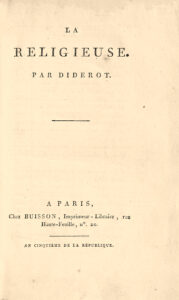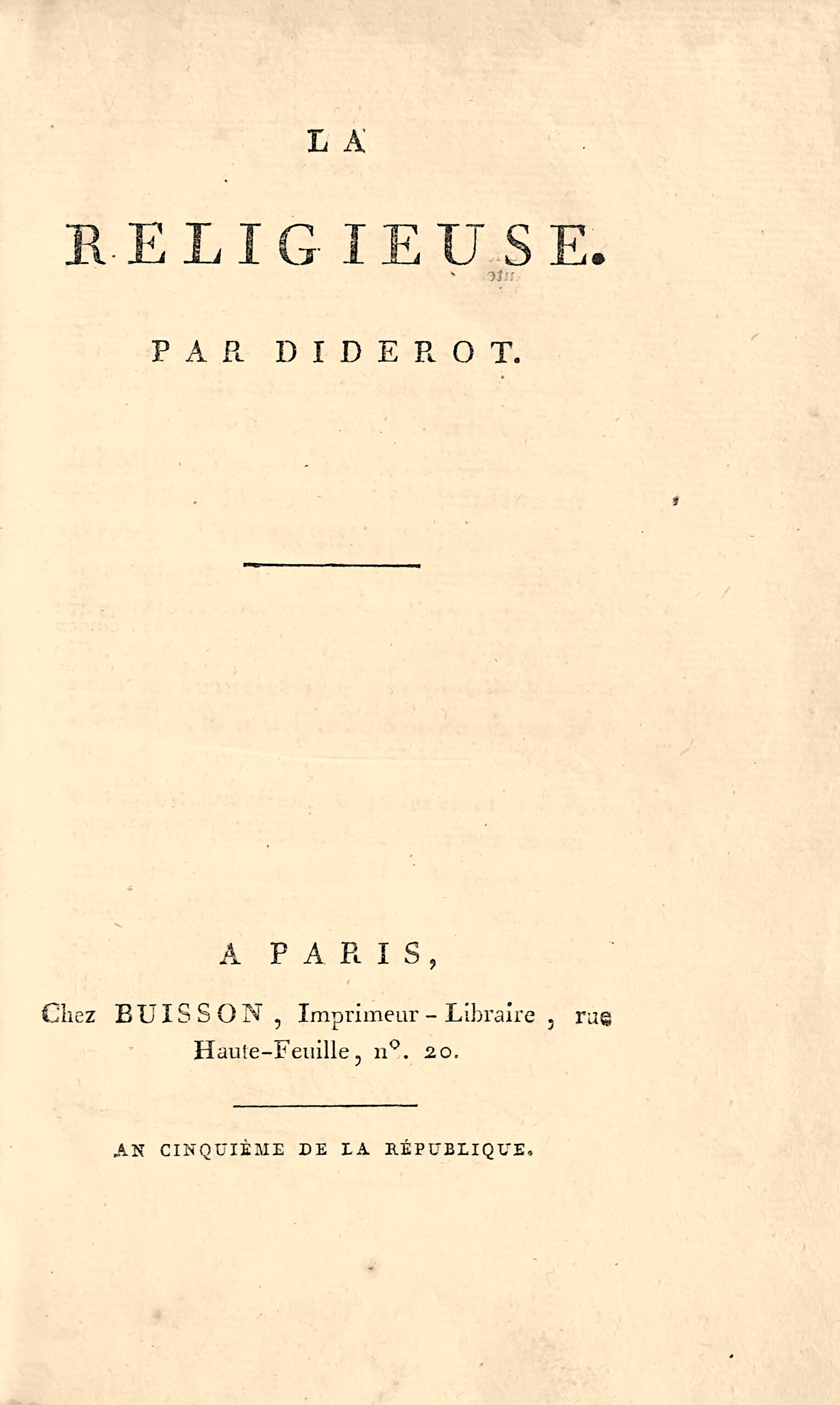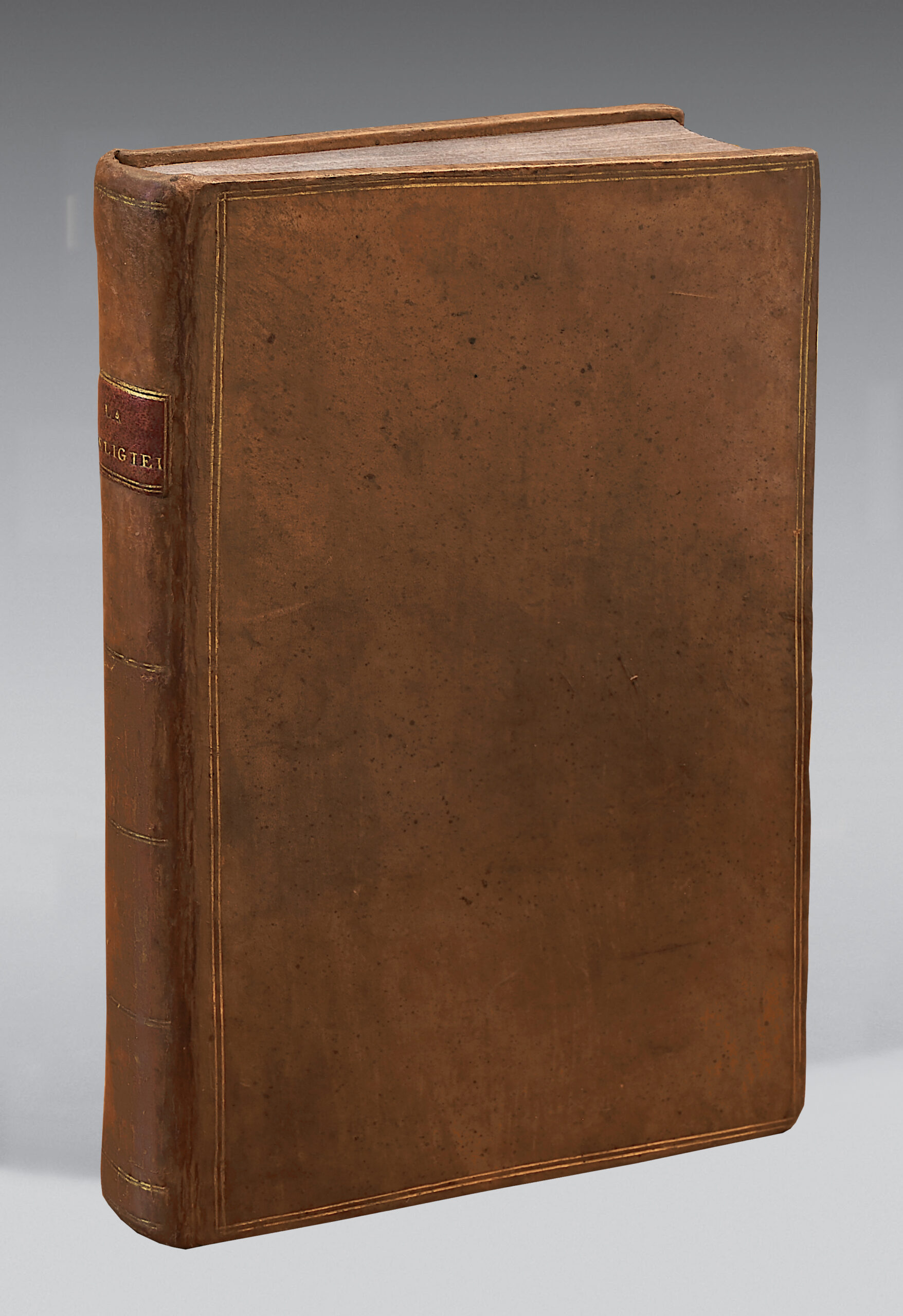Paris, Buisson, An cinquième de la République [1796].
8vo of (2) ll. 411 pp. Bound in contemporary roan, double gilt fillet around the covers, flat spine, red morocco lettering-piece, mottled edges. Contemporary binding.
195 x 121 mm.
First edition. Tchemerzine, II, 969; Adams, Bibliographie des Œuvres de Diderot, RC1.
Written in 1760 and left abandoned by Diderot, this famous novel was found in 1794 and published in the enthusiasm of the extreme anticlericalism of the time. Stigmatising life in convents, the guilty desires of the recluses turning into passions and vices, La Religieuse was seized upon publication.
Its success as a scandal was not denied and continued throughout the 19th century.
“This lively satire of 18th-century female convent life is a warm apology for individual freedom […].
This work was the counterpart, said Diderot, of ‘Jacques le Fataliste’, and he considered it one of his best. He put all his conviction into it”. (Dictionnaire des Œuvres, V, 698).
Through three stages, which are those of the three convents where she is successively locked up, Suzanne, a sincere Christian, discovers a closed world where religious feelings are perverted. The absence of freedom and contact with the outside world encourages the development of servility, hypocrisy, jealousy and hatred.
“However, this novel should not be seen as a purely anti-clerical charge. Diderot’s account is coupled with an analysis of the personality changes affecting those who, according to him, are thus alienated. The manifestations of sadism and hysteria are the result, according to Diderot, of the conditions of a monastic life presented as unnatural: it curbs desires, destroys freedom, creates unnatural hierarchies.
For Diderot, forcing individuals to live outside society makes them monsters. The novel is therefore at the same time an apology for natural morality and individual freedom. The realism of the analysis is accentuated by a writing style that favours body language: gestures and cries are often more eloquent than words in this pathetic novel in the manner of Richardson”.
A fine copy with wide margins preserved in its contemporary binding.



